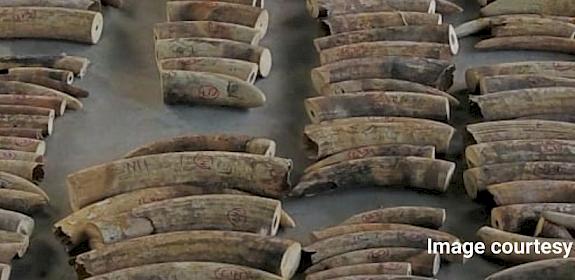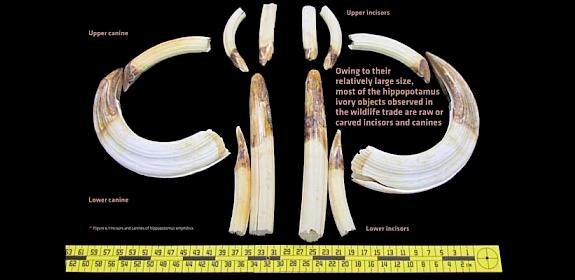CITES enforcement to be given 'high priority'
The Hague, Netherlands, 6 June 2007—The European Commission (EC) today unveiled an Action Plan to improve wildlife trade enforcement within the European Union (EU) and in countries where the trade originates.

The announcement was made during a UK Government sponsored event held in collaboration with TRAFFIC, the wildlife trade monitoring network, during the current meeting of CITES.
Lucy Swan, Chair of the EU CITES Enforcement Group commented: “Giving high priority to CITES enforcement is crucial to combating illegal trade. This EU Action Plan will demonstrate the EU’s commitment to effective enforcement.”
The Plan will help strengthen implementation and enforcement of legislation in EU Member States. Crucially, there will be support for enforcement efforts in producer countries, including capacity building on law enforcement, and increasing awareness of illegal wildlife trade. It marks the latest step in a global approach to tackling wildlife crime adopted by the UK at the previous meeting of CITES, in 2004.
There is a huge and escalating demand in EU Member States for exotic pets, tropical timber and other wildlife products sourced outside its borders. In 2005, the legal trade in wildlife products into the EU was conservatively estimated by TRAFFIC as worth Euro 93 billion.
The Action Plan builds on existing initiatives to combat the increasing illegal wildlife trade fuelled by the growing demand in the EU. These include EU TWIX “EU Trade in Wildlife Information eXchange”, an EU enforcers’ intranet for exchanging information on wildlife seizures across all 27 Member States, ASEAN-WEN, a Wildlife Enforcement Network between Southeast Asian nations, and CAWT (Coalition Against Wildlife Trafficking), a US Government-led partnership of NGOs and governments aimed at tackling international wildlife crime.
Adisorn Noochdumrong, Chief of International Wildlife Trade Control Section in Thailand, and a representative of ASEAN-WEN commented: “The EU Action Plan and ASEAN-WEN present common approaches to international enforcement networking—we look forward to this excellent opportunity for inter-regional co-operation.”
The EU Enforcement Action Plan appears in the Official Journal of the European Community (L145, 20 June 2007) and can be downloaded here.
Notes:
* CITES, the Convention on International Trade in Endangered Species of Wild Fauna and Flora, is an international agreement that regulates global wildlife trade. At this year’s meeting, governments are discussing changes to the list of species protected under the convention, as well as other aspects of implementation of the treaty and controls on wildlife trade.
* In December 2006, EU Environment Ministers formally acknowledged the need for EU assistance in promoting the conservation and sustainable use of wildlife in developing countries and effective implementation of the CITES Convention. (Council Conclusions, 2773rd meeting of the Council of the European Union, 18 December 2006).



